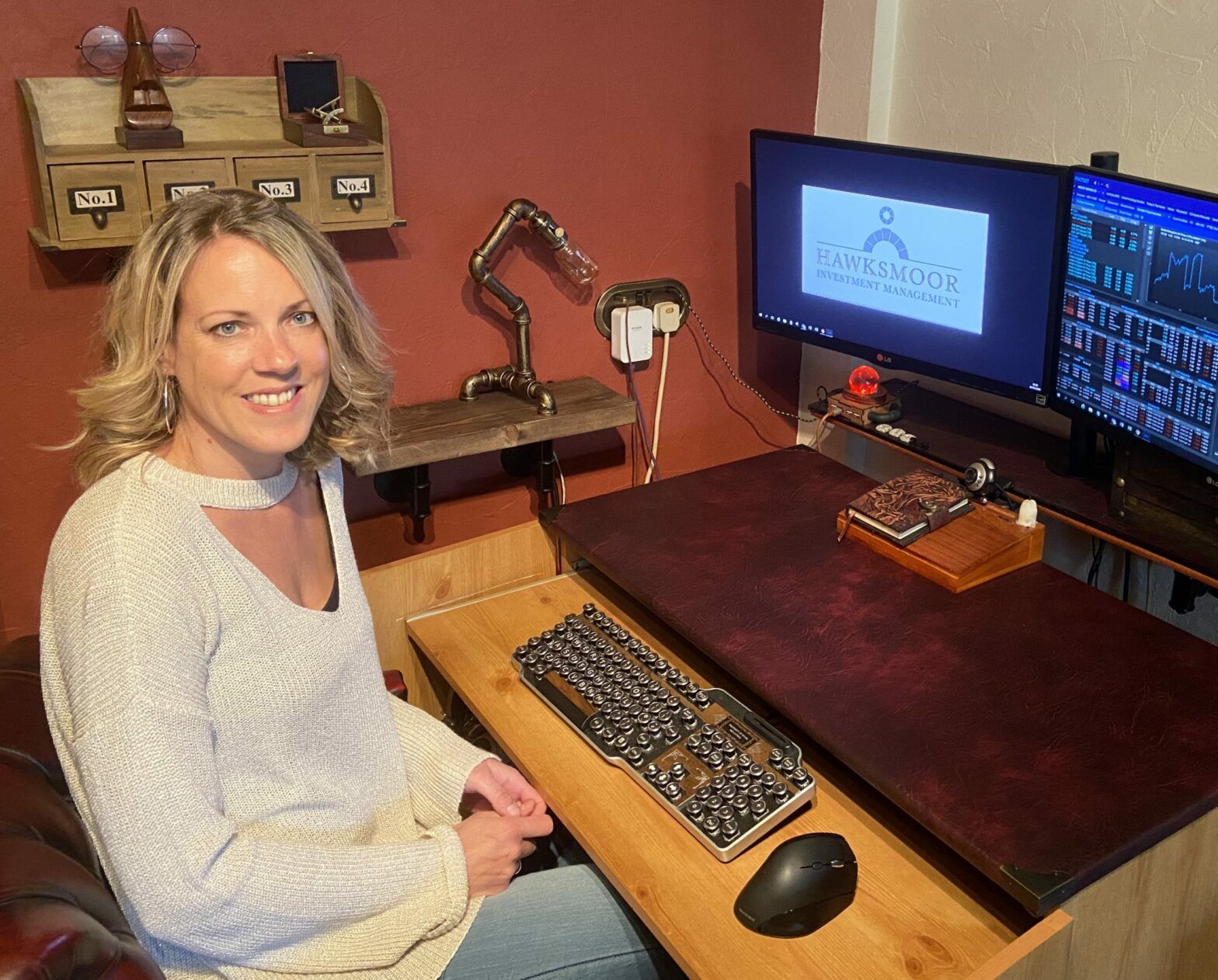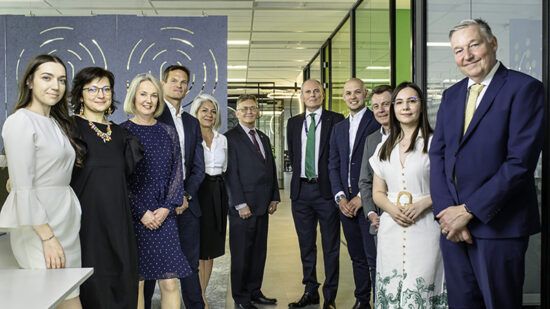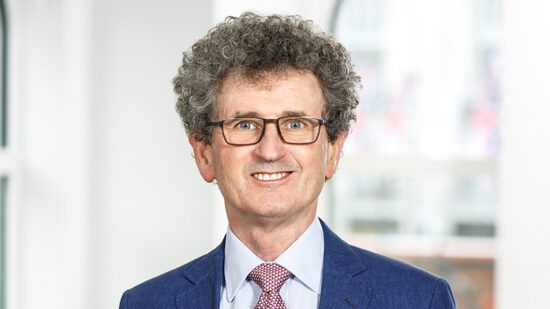In this regular series, female members of the ESG investment industry detail how they are dealing with the transition to remote working during the coronavirus fallout
Following on from our sister title Portfolio Adviser which has been running the Working from Home series with investment experts from the wider industry, we are running these articles twice a week with women in ESG. This week we speak to senior investment manager at Hawksmoor Investment Management, Rebecca Fournier D’Albe.
How has the coronavirus affected your day-to-day work – from both a portfolio and workplace perspective?
I have always been able to work remotely, but before the lockdown Hawksmoor had already trialled a strategy to enable the company to operate efficiently in the event of a crisis. This meant that by the time the restrictions were put in place, we had already tested our systems and processes to ensure we could all operate securely from home. I do however, miss the sense of community that comes with being in the workplace.
Extensive telephone calls and videoconferencing during the crisis has also highlighted how important it is to communicate with clients, even when the news is not good. Integrity, trust and communication are all key to building and maintaining client relationships, especially during unprecedented times.
From a portfolio perspective, I think the crisis has highlighted the importance of selecting quality companies and ensuring proper portfolio diversification.
What has surprised you most about markets during the coronavirus sell-off?
The speed at which markets descended into panic. It was reminiscent of the Great Financial Crisis, but the pace was like nothing I have ever seen before in my career. I suspect the subsequent bounce says more about human psychology and how quickly people adapt than it does about the underlying economic and market outlook for 2020.
What feedback have you had from clients since the coronavirus sell-off?
Many of our clients have lived through market corrections and in truth, they generally seem more concerned about the public health issues.
Although there were some concerns about the market falls, our clients seemed to appreciate that everyone was in the same boat. It was encouraging to see how many responded with a mature, sanguine attitude, and plenty of optimism that there would be a recovery.
How do you think attitudes to ESG initiatives will be affected as we move through the crisis?
I think in some quarters of the industry there had been scepticism about ‘greenwashing’ and the belief that ESG investing was only a fad – and only viable in a growing economy. ESG investing is more geared to technology, and younger companies, so it has often been viewed as higher risk and something of a bull market phenomenon. This has proved not to be the case. The sustainable funds have broadly performed better than their more conventional counterparts, which will go a long way to dispelling any lingering suspicion. I think they are already being viewed as a more viable option for investors than they were before the crisis. Corporate success depends on a safe world, and ESG factors include risk management alongside the desire to find new opportunities.
It is interesting that broadly speaking, environmentally damaging businesses seem to have borne the brunt of the economic decline (e.g. airlines, oil production), while technology and companies with a strong commitment to sustainability have performed better. Throughout the lockdown there are also signs of an awakening of social conscience. Not only has there been a notable rise in kindness to neighbours, but there have been visible environmental benefits to wildlife, and reductions in pollution and wastage.
In some ways this is not surprising, as these themes are increasingly important to investors, and are behind the increased interest and investment in our specialist Sustainable World investment services.
What do you do for fun when you take a break from working at home?
My husband is also working from home, so we have had to adjust to being together all day, every day. We have coffee breaks and lunch together, but we are also trying to maintain the ritual of finishing the work day and relaxing in the evening.
We have been watching a lot of Netflix (for some escapism) and I have been spending a lot more time cooking. I have been in regular contact with my family (my technophobe parents have embraced video calls!) and we have done all the jobs around the house and the garden that we just never had the time to do. The weather has also been kind, but I really miss coarse fishing!
What is your favourite sustainable snack/hot drink when working from home?
I have always hated food waste. I enjoy the challenge of using my imagination to eat well by making good use of leftovers, and not throwing any food away. The turkey, brussels sprout and blue cheese risotto that I made after Christmas for example, was a triumph (honest!). I have also found myself smashing through a lot of cake and biscuits!
Do you have a ‘top green tip’ to share on working remotely?
Now more than ever it is vital to support your local businesses and the farm shops that sell local produce. Not only are you more likely to avoid the mega-queues in the supermarkets, but you will be providing a long-term benefit to your local community and economy.
To view the previous articles from the Working from Home with … series see below:
Safe harbours, team yoga, and Animals of Farthing Wood: WFH with Tribe’s Amy Clarke
Active ownership, hip-hop pilates and natural light: WFH with Federated Hermes’ Kimberley Lewis
Cautious positioning and interactive lessons: WFH with Square Mile’s Diane Earnshaw
Climate debate, board games and weekly podcasts: WFH with Quilter Cheviot’s Claudia Quiroz
Deadlines, schoolwork and team drinks: Working from home with ESG Clarity’s Natalie Kenway








